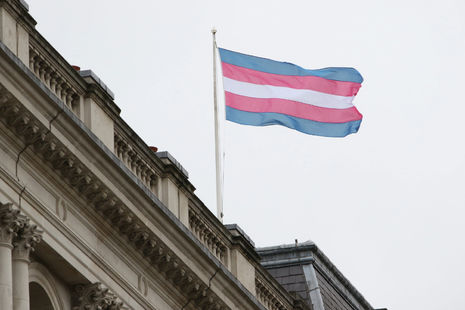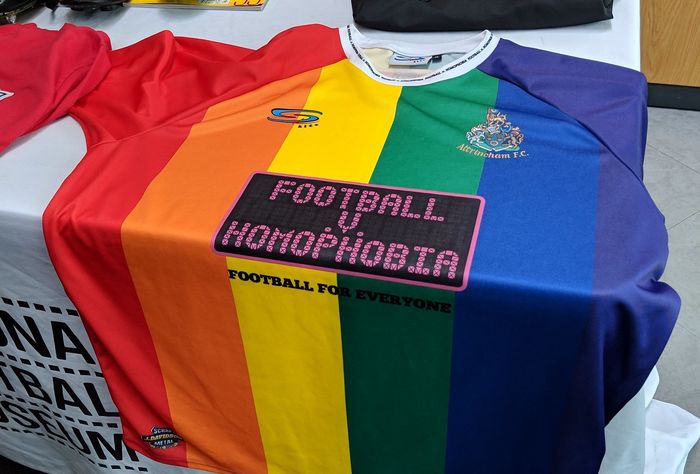Blues Committee to stand by transgender athletes
Committee President vows that ‘sport is for all’ in aftermath of Supreme Court decision

The Joint Blues Committee continues to advocate for solidarity with transgender athletes and will uphold pre-existing policies aimed at fostering inclusivity, according to Committee President Tads Ciecierski-Holmes.
He maintained a resounding belief in “promoting participation in every way possible for trans students,” despite a swathe of national sports bodies recently banning transgender athletes from competing in women’s sport.
Following the Supreme Court’s landmark April ruling that the definitions of a “woman” and “sex” under the Equality Act 2010 strictly refer to biological sex assigned from birth, governing bodies, such as those for football and cricket, have revised their gender participation policies.
However, the Joint Blues Committee – who regulate the coveted ‘Blues’ status of sports clubs at the University and eligibility criteria for the prestigious Varsity fixtures – have withstood the climate of change, affirming that pre-existing transgender policy “still reflects the sentiments of the committee”.
As stated in the Committee’s current rules on Varsity match eligibility, the regulatory authority “supports transgender and non-binary athletes participating in University sport on behalf of the gender with which they identify”.
The statement – last reviewed in June 2020 – goes on to establish: “Captains likely to select transgender or non-binary athletes are requested to notify the Director of Sport in their university at the earliest possible stage. The final decision as to the eligibility of transgender and non-binary athletes will be made jointly by the Directors of Sport at the University of Cambridge and the University of Oxford, prioritising inclusivity, safety and fair competition.”.
When asked about the policy’s applicability in light of the recent legal upheaval, Ciercierski-Holmes said it, “reflects a commitment to promoting inclusivity in sport, that I believe we still very much support”.
He added: “My personal – and perhaps obvious and uncontroversial – view is that sport is for everyone. I think that as a sporting community we should be promoting participation in every way possible for […] groups that may experience barriers to participation.”.
His call for solidarity stands in stark contrast to the sentiments of charity Sex Matters, who proclaimed after the Supreme Court decision that, “there are now no excuses for sports governing bodies that are still letting trans-identifying men into the women’s category.”
Moreover, Downing Street has embraced the Football Association’s (FA) ban on transgender players in women’s football, with a spokesperson for Keir Starmer stressing “that biology matters when it comes to women’s sport,” and citing a need to “protect the integrity, fairness and safety of the game.”
Nevertheless, anti-discrimination charity Kick it Out has condemned these exclusionary measures, labelling the FA’s updated policy as a “a huge blow to the trans community”.
The controversy over transgender female participation has also reverberated around the international sporting community in recent days, amidst seven-time Olympic champion Simone Biles branding ex-swimmer Riley Gaines “truly sick” for brazenly expressing her repudiation of transgender athletes.
2024-25 has witnessed the inaugural iteration of a Joint Blues Committee, uniting the historically separate Men’s and Women’s committees, and Ciecierski-Holmes highlighted the inclusivity advantages of the shake-up, saying: “There is no ambiguity for trans athletes in where they would apply for a Blues award, provided they are performing at a high-level within the rules of their given sport.”
A significantly altered legal situation could yet pose challenges to the Committee’s steadfast commitment to transgender sportspeople, and Ciecierski-Holmes conceded that transgender students “may now […] find it more difficult to perform at a high level and be recognised for this”.
He said: “For example, if a (transgender) athlete meets their Blues criteria for their sport, we will award them a Blue. However, if a national governing body decides that an athlete should not be able to participate in the gender they identify as, and the Directors of Sports or university policy follows said ruling, then an athlete would not be able to achieve their Blues criteria.”
He added: “The Blues Committee constitution has the goal of promoting and advancing sport at all levels within the University as one of its objectives. So, I hope the committee can continue advocating for all students to participate and represent the University in sport and support greater inclusion.”
 News / Report suggests Cambridge the hardest place to get a first in the country23 January 2026
News / Report suggests Cambridge the hardest place to get a first in the country23 January 2026 Comment / Cambridge has already become complacent on class23 January 2026
Comment / Cambridge has already become complacent on class23 January 2026 Comment / Gardies and Harvey’s are not the first, and they won’t be the last23 January 2026
Comment / Gardies and Harvey’s are not the first, and they won’t be the last23 January 2026 News / Students condemn ‘insidious’ Israel trip23 January 2026
News / Students condemn ‘insidious’ Israel trip23 January 2026 News / Cambridge ranks in the top ten for every subject area in 202623 January 2026
News / Cambridge ranks in the top ten for every subject area in 202623 January 2026










